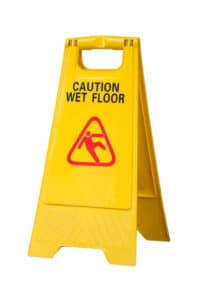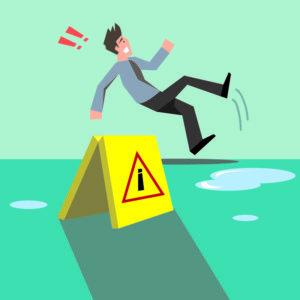Understanding losses and compensation allow for better valuation of personal injury claims. For many, the consideration of filing their personal injury claim for slip and fall, car accidents, or other personal injuries might pose two important questions: “Is it worth it?” and “What is my case worth?” The main factor in formulating the arguments and answers surrounding these questions comes down to calculating your damages–what are the physical, monetary and mental damages that deserve compensation, and if a defendant can truly be punished based on your circumstances. In personal injury cases, monetary damages are paid to the injured party, the plaintiff, by the opposing party or entity who is found to be legally responsible for an accident, either an insurance company or the defendant.
Take a look at different damages in a personal injury case to better understand your compensation:
- Monetary or Compensatory Damages in Your Personal Injury Case
- In most personal injury cases, many of the damages accounted for are classified within this category of compensatory damages. This means that the intention is to compensate the personal injury victim for whatever was lost, or severely affected, by their personal injury accident. The key behind this is trying to put a dollar amount and value all of the consequences of one’s accident or injuries. Common reimbursements include medical bills and property damage, but others may be difficult to calculate or value based on their impact to a personal injury’s plaintiff, such as the emotional distress or pain and suffering.
- Common compensatory or monetary damages in a personal injury case include:
- Emotional distress – In more serious personal injury accidents and claims, emotional distress damages are used to compensate the plaintiff for any psychological impacts their case may have, which may have lasting impacts on their day-to-day life. Examples may include, but are not limited to, anxiety, fear, paranoia, and loss of sleep. In some states, this emotional distress category may be viewed as part of the whole for pain and suffering damages as it pertains to a personal injury case and plaintiff’s damages.
- Income – Depending on the severity of your case, and its impact on your salary, wages or ability to work, you may be entitled to compensation.
- Medical treatment – For the medical treatment category, it is the calculation or determination of your case damages and medical bills related to it, as a plaintiff may be compensation, or rather reimbursed, for treatment already received or future medical attention needed.
- Pain and suffering – This may be one of the more difficult damages to value. As the plaintiff, you may be entitled to compensation for pain, suffering and serious discomfort suffered as a result of or during a personal injury accident.
- Property loss – Any personal items, clothing, vehicles or other property damages as a result of your personal injury accident may entitle you to repair or replacement reimbursements based on the market value for any lost or damaged property.
- Punitive Damages
- In most cases in which a defendant’s conduct is in question or ultimately deemed particularly careless and egregious, the plaintiff in a personal injury case may be compensated and awarded for punitive damages. This calculation is rather different from that of compensatory damages and calculating the value of compensation for wholeness. Punitive damages are still awarded to an injured plaintiff in the case, but the effort and goal for these damages is to punish the defendant for their conduct, negatively impact them financially and act as a deterrent or obstacle. Punitive damage awards typically do not top tens of millions of dollars, like compensatory damages can, most states have a designated cap for personal injury case punitive damages.
In Nevada, this variety of factors may determine your personal injury settlement and compensation. Your damages stem from the impact the personal injury case has on the plaintiff, or victim, at the expense of the defendant or responsible party. If the opposing party was under the influence of alcohol or drugs, their conduct may entitle the plaintiff to additional compensatory damages.
For tips on determining the value of your case, turn to the trusted lawyers at Richard Harris Law Firm. Our lawyers have years of experience dealing with damages and determining what your personal injury claim is worth.





























